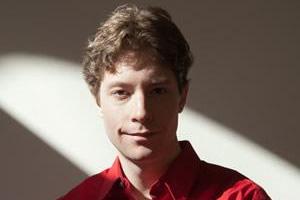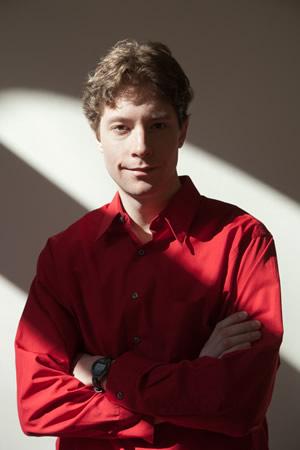A Russophile’s Dream

Study-abroad experiences help launch an international career
by MaryAlice Bitts Jackson

Evan Sparling '08
Two years ago, Evan Sparling ’08 had two intriguing job offers: to be a freelance journalist in Kyrgyzstan or to work for an international organization that would allow him to divide his time between the United States and Russia.
Sparling, a longtime Russophile who majored in history and Russian-area studies at Dickinson, chose option B. “They reeled me in by promising I could spend some of my time in Russia riding horses and fly-fishing,” the outdoorsy Poughkeepsie, N.Y., native and avid fly-fishing fan says with a smile.
Today, Sparling helps protect the salmon supply on Russia’s Kamchatka Peninsula through Pacific Environment, a nonprofit that partners with organizations in China, California and Russia. It’s an ideal career, marrying Sparling’s desire to preserve natural resources—he spent summers, as a college student, working for a forestry organization—with his passion for travel, adventure and all things Russian. The international lifestyle agrees with him, too. Two days after jetting in from Russia, he shows no trace of jet lag and shifts effortlessly between chats with fellow Dickinsonians and business calls, conducted in Russian, with his boss.
On Feb. 13, Sparling visited Dickinson to speak about his work as a Fulbright scholar and to offer tips to current students with similar aspirations. He credits his experiences as a Dickinson student with providing him the skills and confidence to meet his goals.
Media, tiny apartments and sheep
The origin of Sparling’s Fulbright pursuits date back to 2007, when he spent a full academic year abroad through the Dickinson-in-Moscow program. After spending winter break in Uzbekistan and Kazakhstan, he grew fascinated with the relationships he saw between Soviet power and the former Soviet Union’s national identity. He researched the topic further during his second semester in Moscow, gathering primary information by volunteering at a refugee center.
Just a few months after graduation, Sparling received a Fulbright grant to continue his research in Kyrgyzstan; he spent the following year scouring media archives and conducting oral-history interviews.
He also learned to ride horses, taught at the Kyrgyz National University, volunteered as a grant-writing tutor at a local organization, published several freelance articles and traveled on his own to the south of the country.
The influence of tea
This was heady stuff, and it arrived with many challenges, big and small. Sparling not only needed to figure out how to self-direct a large-scale research project, but also how to select an acceptable sheep for dinner; find a comfortable apartment in an area where three people might share a 10-by-10 living space; and learn to appreciate local delicacies, such as mares’ milk.
But the most important skill he employed was the ability to collaborate effectively with people across generations and cultures in a land where he knew no one, and where few other foreigners ventured.
While teaching at a local university, Sparling discovered a disarmingly simple solution: to get to know his colleagues over a hot pot of tea. “Drinking tea was probably the most valuable thing I could do to make contacts,” he says, adding that the people he met included a NATO ambassador. “People would tell me all sorts of interesting things that I might not have learned otherwise, like how many sheep they had to give to their fiancée’s family in order to marry her.”
More important, he built strong relationships that were strengthened by his volunteer work. The goodwill and trust he generated by offering grant-writing advice and teaching immigrant students helped him tremendously when he reached the stage in his research when he needed to conduct interviews.
Prepping for adventure
Sparling also notes that his undergraduate work was instrumental in preparing him for adventures to come.
“[As a Fulbright scholar], you’re more on your own; you don’t have a host family or an Office of Global Education to help you,” he says. “But I was ready to do it, because my year in Moscow not only improved my language skills exponentially, but also prepared me to take on a lot of difficult challenges.
“Dickinson pushed me to not only visit and study in another country, but also to conduct research, volunteer and travel—I was constantly moving outside of my comfort zone.”
Published June 5, 2013